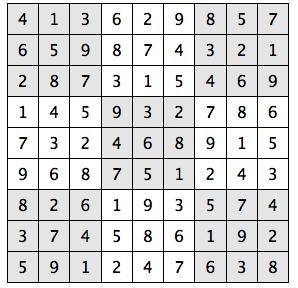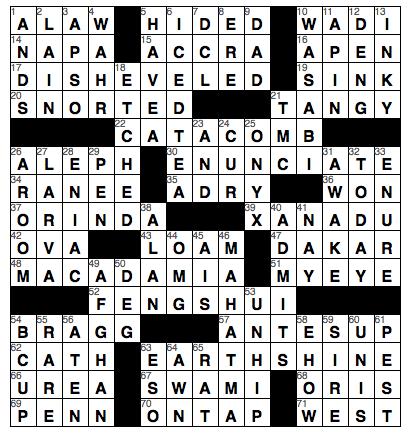



















The San Juan Daily Star, the only paper with News Service in English in Puerto Rico, publishes 7 days a week, with a Monday, Tuesday, Wednesday and Thursday edition, along with a Weekend Edition to cover Friday, Saturday and Sunday.

By THE STAR STAFF
After seven years overseeing Puerto Rico, Financial Oversight and Management Board Executive Director Robert Mujica said Wednesday that the oversight board will become more active in moving along the reconstruction of the island’s electrical grid to stabilize the system, and warned that the government must have a viable alternative if it wants to get rid of the private firms currently operating the assets of the Puerto Rico Electric Power Authority (PREPA).
Mujica said that while he believes the private operators, LUMA Energy and Genera PR, are underperforming, he also thinks the root cause of the problem is the slowness in fixing the grid as just $1.3 billion of the $17 billion allocated for energy infrastructure has been spent.
“If you want to get rid of the operator, you need to have an alternative, and you better have one immediately because any transition will take time … and there will be more delays,” Mujica said. “We will have to approve the contract.”
New Progressive Party gubernatorial candidate Jennifer González Colón, Popular Democratic Party gubernatorial candidate Jesús Manuel Ortiz González, Dignity Project gubernatorial candidate Javier Jiménez and Juan Dalmau Ramírez, the gubernatorial candidate for the Alliance, have all said they will cancel the contracts of the private operators because they are not performing as they should.
“You are in the middle of the election cycle; people say a lot of things,” Mujica said. “We have to make sure the system is working and any more delays do not work for the people of Puerto Rico.”
He rejected the idea of having public officials running PREPA again.
“Those who don’t remember the mistakes of the past are doomed to repeat them,” Mujica said. “Let’s remember how we got to the place where we are now. The old operator did not invest in the system. Politics intervened. Those elements are recurring. The further you get into a crisis, the more you forget.”




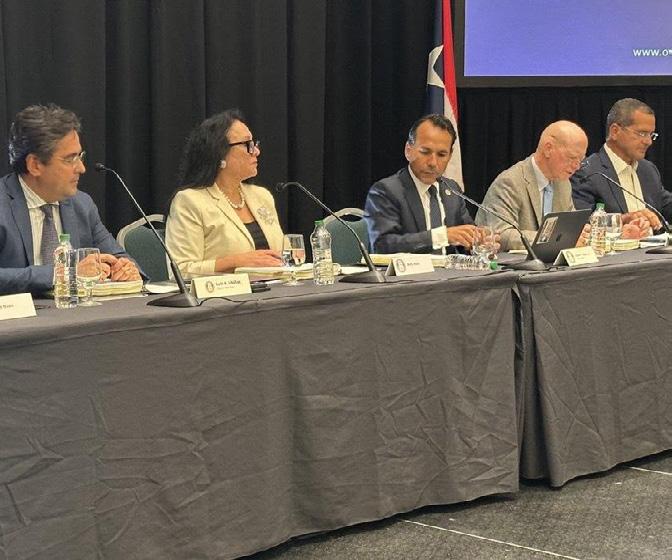
Financial Oversight and Management Board Executive Director Robert Mujica, third from right, said that while he believes the private operators of Puerto Rico’s electric power system, LUMA Energy and Genera PR, are underperforming, he also thinks the root cause of the problem is the slowness in fixing the grid as just $1.3 billion of the $17 billion allocated for energy infrastructure has been spent.
funds and the island government has taken the position that federal funding is its purview.
He said that at this point, the board wants to accelerate the process to fix the grid and for that it needs to find money for PREPA. The utility has about $1.5 billion in its account but most of that is restricted or in reserve accounts.
“As the pace of the investment in the system increases, you run up against a reimbursement issue,” Mujica said. “We need to accelerate the process and for that we need more cash.”
Mujica attributed the power outages to a lack of sufficient generation to meet demand and the failure to fix and renew the energy infrastructure.
“We want to focus on solutions. The role of the board is reconvening all of the parties on a regular basis, and identifying problems to find solutions,” he said. “No one is talking about the fact that we have only invested $1.2 billion out of $17 billion.”
Mujica said the oversight board did not intervene before because it does not control or manage federal
The plan, he said, is to examine the bank account balances and evaluate options such as reimbursements from the Federal Emergency Management Agency to fix a failing grid.
Mujica also said the oversight board is preparing an economic plan for Puerto Rico, whose economy is currently being supported by federal funds that will soon taper off.
“There is $10 billion in federal funding running through the economy” he said. “It makes the economy look better [than it would look] in the absence of federal money. It will fall off.”
By THE STAR STAFF
Despite the objection of more than two dozen municipalities, the judge overseeing the Puerto Rico Electric Power Authority’s (PREPA) bankruptcy case gave the green light to PREPA’s debt settlement with Cobra Acquisitions for work to restore the grid after it was destroyed by Hurricanes Irma and Maria in 2017.
Swain made her ruling during Wednesday’s omnibus hearing to discuss the state of PREPA’s bankruptcy case. At least 15 municipalities are objecting to the settlement with Cobra Acquisitions because they will lose $75 million in construction and municipal taxes. The government has said the settlement does not stop towns from seeking the tax payments owed for the construction work performed by Cobra. PREPA agreed on July 31 to back Cobra Acquisitions in its
municipal tax dispute, as the utility reached a $188 million settlement with the company.
Cobra had initially argued that PREPA owed $406 million, including interest expenses for work completed more than five years ago after Hurricanes Maria and Irma devastated the island.
PREPA would pay Cobra $150 million 10 business days after Swain approves the settlement, and another $20 million once the electric utility’s bankruptcy plan is confirmed.
PREPA had also agreed to back Cobra in the tax dispute, but not be liable for the money if Cobra ultimately loses.
Swain said during the hearing that the municipalities violated PREPA’s automatic stay by keeping the funding that the utility was going to use to pay Cobra.
The towns that claim Cobra owes them money are: Gurabo, Las Piedras, Humacao, Caguas, Salinas, Arroyo, Cayey, Guayama, Yabucoa, Guaynabo, Patillas, Maunabo, Ceiba,
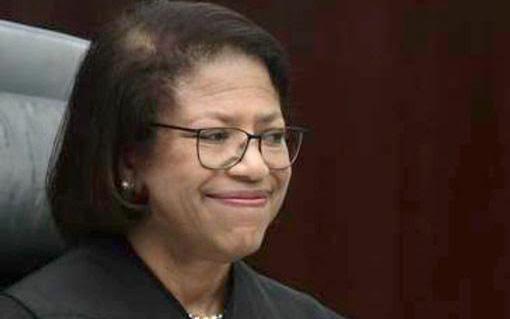
Naguabo and Utuado.
Foreman Electric Services also disputed the payment to Cobra but Swain said the company did not have standing to intervene in the dispute.
By THE STAR STAFF
The “Alliance” between the Puerto Rican Independence Party (PIP) and the Citizen Victory Movement (MVC) announced on Wednesday its common programmatic objectives, which will serve as a basis for a possible joint government. The proposals cover priority issues such as corruption, the energy system, health, education, the environment and sustainable economic development.
“The PIP and the Citizen Victory Movement have identified various common aspects in their government programs to respond to the needs of the people of Puerto Rico, through the promotion and protection of human rights,” said attorney Juan Dalmau Ramírez, the Alliance candidate for governor, in a written statement.
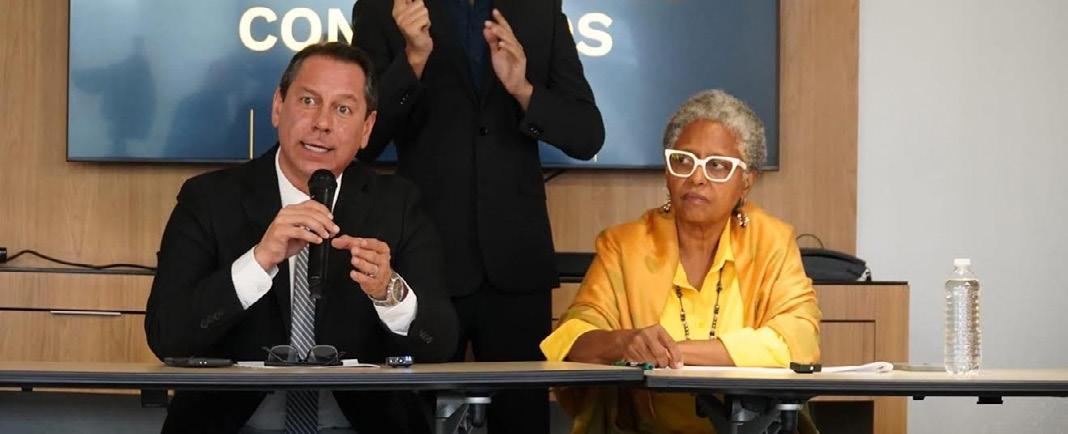
she said.
The Alliance stressed that its public policies will focus on building a fully democratic government that respects human rights and responds to the needs of the people. Among the highlighted measures are the elimination of corruption, the cancellation of the LUMA and Genera PR contracts in the energy sector, and the implementation of a universal health system.
“The rescue of the energy system is a priority for us,” Dalmau stressed. “We will recover control of the energy system for the people of Puerto Rico, focused on transparency, democratic participation, and renewable energy.”
“We have collected these common visions in ten proposals to which both parties, as well as various sectors of civil society, are committed,” Dalmau added. “It is necessary to lead the government along a new path of honesty and efficiency.”
Alliance will propose for the next four years.
Ana Irma Rivera Lassén, the Alliance candidate for resident commissioner, stressed that the government program being presented is only the beginning of what the

“Our starting point is solidarity and inclusiveness, developing concrete proposals that will achieve sustainable economic development for Puerto Rico without sacrificing the environment or human rights,”
He also said the Alliance will fight for the elimination of the Financial Oversight and Management Board and for the development of a “fair and sustainable” economy.
Rivera Lassén reiterated the Alliance’s commitment to public education and the defense of human rights, and called for unity to build a fair future for Puerto Rico.
By THE STAR STAFF
Gov. Pedro Pierluisi Urrutia and Puerto Rico Aqueduct and Sewer Authority (PRASA) Executive President Doriel Pagán Crespo on Wednesday inspected the dredging work at the Carraízo reservoir, a project with an investment of $107.1 million from the federal government and PRASA.
“The Carraízo reservoir is crucial to guarantee drinking water to more than 171,387 families,” Pierluisi said in a
written statement. “I thank FEMA [the Federal Emergency Management Agency] and the PRASA for their collaboration on this project.”
Pagán Crespo said 600,000 cubic meters of material have been extracted and that the project will be completed by August 2025, improving the resilience of the raw water system that feeds the Sergio Cuevas filtration plant.
The work is being carried out by Great Lakes Dredge & Dock Company. PRASA has an interactive map for tracking the progress of this and other projects.
By THE STAR STAFF
The University of Puerto Rico (UPR) Río Piedras Campus and the Department of Corrections and Rehabilitation (DCR) announced Wednesday the admission of a confined student to pursue studies leading to the academic degree of Juris Doctor.
Miguel Ángel Nieves Domínguez began studying at the UPR School of Law this semester, as part of an agreement signed between the two institutions that makes university studies in law possible for a particular group of incarcerated individuals.
“Today we take a significant step in the history of our institution, particularly our Law School, by demonstrating that education is a powerful tool for the transformation and rehabilitation of people deprived of their liberty,” UPR Río Piedras Campus Chancellor Dr. Angélica Varela Llavona said in a written statement. “This agreement not only reaffirms our commitment to social justice, but also opens new doors of hope and opportunities for those seeking rehabilitation and reintegration into society.”
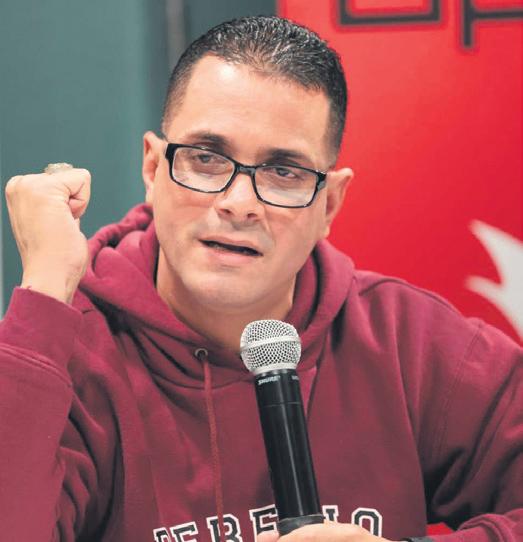
Nieves Domínguez graduated from the first class of the University Studies Program for Confined Persons, a project founded by Father Fernando Picó that continues today thanks largely to the efforts of Dr. Edna Benítez Laborde of the General Studies Department. School of Law Dean Vivian Neptune Rivera said “Miguel is a clear example of the
power of education in rehabilitation.”
“Aspiring to be a member of the legal profession and giving a voice to those who do not have one synthesizes his dreams and desires to work for real access to justice,” she said. “Legal education is the key tool for achieving a more just and inclusive society. Miguel’s studies at our school are the best example that aspirations and dreams can become reality when the necessary support is available and access to educational institutions is made possible.”
The UPR’s agreement with the DCR will be valid until July 2029 and includes two additional admissions for August 2025 and 2026, respectively, if the applicable requirements are met.
Nieves Domínguez graduated with a bachelor of arts degree from the General Studies program, with Magna Cum Laude distinction, in May 2022, as part of a collaborative agreement with the DCR that establishes access for confined populations to the bachelor’s degree program as a support strategy in the rehabilitation process. In January of this year he was admitted to the master’s degree in administration and cultural management. He
By THE STAR STAFF
The Subcommittee on Indian and Insular Affairs of the U.S. House of Representatives will hold an oversight hearing titled “Examining Puerto Rico’s Electrical Grid and the Need for Reliable and Resilient Energy” on Thursday, Sept. 26.
Witnesses are by invitation only.
The hearing comes amid blackouts endured by island residents and questions as to the pace of the grid’s reconstruction.
A feud between the government-owned Puerto Rico Electric Power Authority and
privately run grid manager LUMA Energy is also drawing new attention to Puerto Rico’s power struggles. The territory continues to be plagued by outages and heat advisories.
About 350,000 of the 1.5 million electricity customers across multiple municipalities lost power in mid-June.
The island territory’s plight makes Puerto Rico an example of what happens when a warming climate collides with a tottering electrical grid.
Years of underinvestment and poor maintenance by the heavily indebted public utility left Puerto Rico’s grid vulnerable to
frequent blackouts. But Hurricane Maria caused horrific destruction in 2017, killing almost 3,000 people and plunging parts of the island into blackouts that lasted nearly a year. That same year, Puerto Rico filed the largest municipal bankruptcy claim in U.S. history.
Public outrage over blackouts and access to affordable electricity has put the spotlight on the public and private managers of the system.
LUMA, which also handles billing for electrical service on the island, has received fresh condemnation over price hikes imposed on its customers. It attributes the hikes to the rising cost of generation fuel.
completed one semester in that degree program under Humanities Faculty, but his dream was always to study law. For this reason, during his undergraduate studies he participated in the Public Schools Liaison program in a special collaboration with the School of Law and took the Law School Admission Test, or LSAT.
Nieves Domínguez was admitted to the law school in August after fulfilling all the requirements and formal application procedures.
“… [S]tudying for a bachelor’s degree was a great challenge,” the law student said. “The process was enriching and changed my worldview. Then, in the Master’s in Administration and Cultural Management, I integrated knowledge that I can align toward social development. Now, I am fulfilling my dream. I am studying at the University of Puerto Rico’s School of Law.”
“My goal is to create opportunities for social inclusion for others as part of social transformation,” Nieves Domínguez said. “University education is a tool that encourages human development through critical thinking. This is an important moment for social transformation.”

Puerto Rico’s ongoing energy sector troubles exemplify, among other things, what happens when a warming climate collides with a fragile electrical grid. (Facebook via LUMA Energy)
By THE STAR STAFF
Judge William Machado Aldarondo of the Mayagüez Court of First Instance has set Nov. 7 as the start of the trial against the suspended mayor of Mayagüez, José Guillermo Rodríguez.
The trial was scheduled earlier this week while the mayor’s legal representation filed an appeal before the Puerto Rico Supreme Court, which is pending resolution.
In July, a Court of Appeals panel composed of judges Laura Ortiz Flores, Maritere Brignoni Martí and Carlos Candelaria Rosa
upheld the denial of the request to dismiss charges of conspiracy and misappropriation of public funds against Rodríguez and municipal finance director Yahaira Valentín Andrade. That determination validated the procedures carried out by special prosecutors Leticia Pabón Ortiz and Ileana Agudo Camareno
during the preliminary hearing. The charges against Rodríguez and Valentín Andrade are related to the diversion of $9.8 million intended to complete phases five and six of the Mayagüez Trauma Center, funds that were deposited in an investment account in New York.
By NICK CORASANITI and ALEXANDRA BERZON
Former President Donald Trump’s escalating calls to investigate and prosecute election officials he sees as “corrupt” are sounding alarms among democracy experts and the local and state workers preparing to run elections and tally millions of votes across the country.
In recent social media posts, Trump has said that election officials “involved in unscrupulous behavior will be sought out, caught, and prosecuted at levels, unfortunately, never seen before in our Country.” The November election, he added, “will be under the closest professional scrutiny and, WHEN I WIN, those people that CHEATED will be prosecuted to the fullest extent of the Law, which will include long term prison sentences so that this Depravity of Justice does not happen again.”
On its face, the statements are promises to enforce the law. But coming from Trump, a politician who has repeatedly claimed to see corruption and fraud where there is no evidence of either and who as president pressured law enforcement officials to act on his complaints, the words raise the prospect that government officials could be investigated and prosecuted for conducting a fair election.
In his refusal to accept his defeat in 2020, Trump already has accused election officials of working against him, calling them out by name on social media and spreading falsehoods about their work.
Democracy experts said the talk of prosecution had troubling parallels. Such threats are far more likely in new nations, postcommunist states or places that are “struggling in the shad-

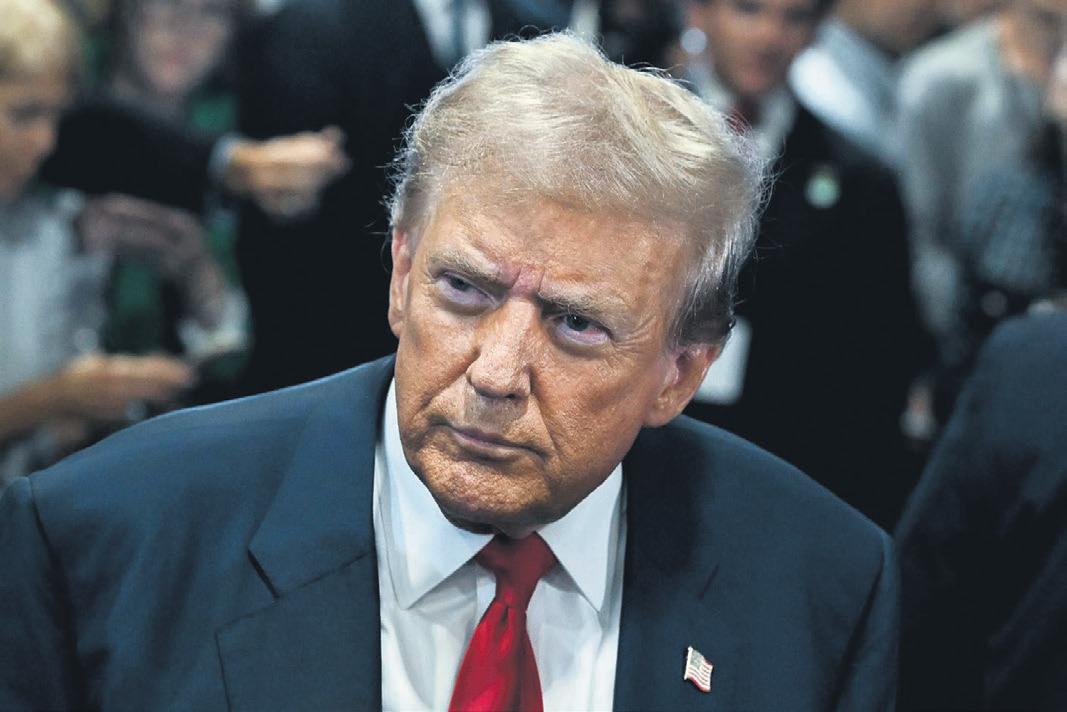
Judd Choate, election director for the state of Colorado. “We live in the U.S., where you have to have a basis for incarcerating somebody. I don’t see it going anywhere, but it’s part of a larger strategy to create fear and reticence in election officials.”
Sara Tindall Ghazal, an election official in Georgia, said Trump’s post immediately reminded her of her time spent working as an election monitor in Liberia.
Tindall Ghazal, a Democrat, said she once received a warning in the days after an election there that the president’s special guard was raiding a radio station near her office. She quickly drove to check on her colleagues, but police pulled her over, she recalled.
“It was absolute sheer terror that I felt at the time, because I thought, ‘I’m next, OK, this is it,” she said. (It turned out that the police officer only wanted a bribe, she said.) “That whole scene, and that sort of visceral relief, replayed through my head when I read the headlines, and when I saw the post.”
Trump’s campaign stood by his statement, saying that “anyone who breaks the law should be prosecuted to the fullest extent of the law, including criminals who engage in election fraud.”
ows between democracy and authoritarianism,” said Larry Diamond, who studies democracies around the world as a senior fellow with the Hoover Institution at Stanford University.
“You won’t find instances in the contemporary world of a mature and stable and even faintly liberal democracy where a major presidential candidate is making these kinds of threats,” he said. “It’s just bizarre and unprecedented.”
In the United States, candidates from both parties have long publicly treated election officials as impartial, largely saving disputes about how an election was run for lawsuits.
Trump’s steady complaints about his loss in 2020 have shredded that norm, opening up election officials to a flood of false allegations and threats of violence.
The threats carry extra weight as the country confronts scenes of political violence. On Sunday, there was a second assassination attempt on Trump, though he escaped unharmed. And on Monday, suspicious packages arrived at the offices of at least 15 election officials, prompting evacuations. (Investigations are ongoing.)
Jena Griswold, Colorado’s secretary of state and a Democrat, said she had received more than 1,000 serious threats, including death
threats, in the past year, part of an environment she attributes to comments from the former president. Since 2020, Trump has repeatedly claimed that his defeat was rigged by Democrats, although scores of courts, audits and investigations have proved him wrong.
Across the country, election officials have adapted to a hostile climate. Election offices have been outfitted with bulletproof glass and panic buttons, election officials say. Some officials have sought law enforcement protection for their homes around Election Day. They are training their staff on how to de-escalate tense situations and have shown videos about how election workers can address mental health concerns that stem from the pressures of their jobs.
But Trump’s comments about postelection prosecution spoke to a threat that is more difficult to prepare for and, for some, harder to contemplate.
In interviews with more than two dozen election officials, some of whom gathered at a conference in Detroit last week, several said they were more focused on getting through the election than worrying about being prosecuted afterward. Many said they believed the courts would protect them as long as they followed the law.
“In one respect I think, ‘Good luck,’” said
Trump’s comments were a topic of conversation at the hotel in Detroit last week where hundreds of election officials from around the country, representing both major parties, gathered for the annual conference of their main professional association. There, the mundane work of these government workers contrasted sharply with the picture of partisan lawlessness often painted by Trump and his allies.
Officials attended sessions and luncheons about the intricacies of running complex elections. Awards were given for offices that had figured out ways to eliminate lines or schedule poll worker shifts.
Dozens of graduates of a certification program stood and recited an oath to honor the principles of their profession, such as upholding the Constitution and all laws, maintaining the “highest level of integrity” and protecting public office from partisan gain.
Choate said he worried that too many Americans did not see this part of his work. Just before the conference, he had to report a threat to the FBI after a voter he had been emailing with for years suddenly suggested that he be executed for treason.
“They are treating or talking about us like we’re not real people with kids and dogs and homes,” Choate said. “It’s easy to pick on us when you don’t think of us as human.”
By BEN SISARIO and JULIA JACOBS
Sean Combs, the embattled music mogul, was denied bail earlier this week after pleading not guilty to charges of sex trafficking, racketeering conspiracy and transportation to engage in prostitution.
In a federal indictment unsealed Tuesday, Combs, 54, was described as the boss of a yearslong criminal enterprise that threatened and abused women, coercing them to participate against their will in drug-fueled orgies with male prostitutes and threatening them with violence or the loss of financial support if they refused.
The 14-page indictment against Combs, a producer, record executive and performer who is also known as Diddy and Puff Daddy, came a day after he was arrested in a Manhattan hotel room, following an investigation that has been active since at least early this year. Prosecutors said Combs and his employees engaged in kidnapping, forced labor, arson and bribery, and kept firearms at the ready.
In asking a magistrate to deny Combs’ request to be released on bail, prosecutors argued that he was a threat to the community. One of the prosecutors, Emily A. Johnson, called him a “serial abuser and a serial obstructer,” and said his wealth would make it easy for him to escape undetected. She noted that after Combs was arrested, law enforcement found what they suspected to be narcotics in his hotel room, in the form of pink powder.
Combs’ lawyers suggested a $50 million bond. But Judge Robyn F. Tarnofsky denied their request, citing Combs’ anger issues and history of substance abuse, and ordered Combs detained while he awaits trial.
“My concern,” the judge said, “is that this is a crime that happens behind closed doors.”
As Combs walked out of the courtroom, he looked toward his supporters in the room, including his three adult sons, and put his hand on his heart.
Outside the courthouse, Marc Agnifilo, one of Combs’ lawyers, said they would appeal the denial of bail, and added, “We believe in him wholeheartedly.”
During the hearing, Agnifilo began to mount Combs’ defense against the indictment, asserting that the sex trafficking charge, which involves Combs’ former girlfriend, Casandra Ventura, was based on
consensual sex over a 10-year relationship.
“They are coming into this man’s bedroom,” Agnifilo said of the government’s case.
The racketeering charge carries a maximum sentence of life in prison, and a sex trafficking conviction would carry a mandatory minimum sentence of 15 years.
The charges are a stunning repudiation of Combs’ long-standing public image. He was one of the most influential figures in the spread of hip-hop as a global commercial force, produced era-defining hits for stars including the Notorious B.I.G. and Mary J. Blige, and built a business empire based largely on his raffish, street-smart personal brand. Those included the Sean John fashion line and a partnership with liquor giant Diageo that over the years earned him more than $1 billion.
Although he has long been trailed by accusations of violence, he was largely unscathed until a series of lawsuits over the past year accused him of sexual assault and other allegations of sexual misconduct. His business empire began to crumble as a federal investigation swirled around him.
The indictment, which was filed with the court last week and unsealed Tuesday, includes graphic descriptions of what it says Combs called “freak offs”: “highly orchestrated performances of sexual activity” in hotels and other locations that were fueled by drugs and could go on for days. At these events, the government says, women were plied with drugs to keep them “obedient” and coerced to participate in sex with prostitutes.
Those coerced to participate in the orgies “typically received IV fluids to recover from the physical exertion and drug use,” according to the indictment.
Combs would watch these events, sometimes while masturbating and recording video. According to the government, Combs “used the sensitive, embarrassing and incriminating recordings that he made during Freak Offs as collateral to ensure the continued obedience and silence of the victims.”
Prosecutors asserted that the women believed they could not refuse his demands without physical or emotional abuse, or without fearing that their financial or job security would be put at risk. They alleged that Combs maintained control over women by tracking their location, dictating their appearance, monitoring
their medical information and supplying them with drugs.
No victims are named in the indictment, and the government’s sex trafficking count mentions only an anonymous “Victim 1.”
But the descriptions of the events mirror accusations made in a lawsuit last year by Ventura, Combs’ former girlfriend and an artist signed to his record label, Bad Boy, under the name Cassie.
Ventura settled her lawsuit, which was filed in November, after just one day, with Combs denying any wrongdoing. But the indictment describes orgies in similar terms to Ventura’s suit, saying they involved copious amounts of drugs and other supplies.
As part of the government argument that Combs should be denied bail, prosecutors accused him of obstructing justice after Ventura’s lawsuit. They wrote in court papers that he and his associates reached out to potential victims and witnesses to “feed” them “false narratives,” including by making several calls to someone prosecutors describe as a victim of his sexual abuse.
“During the calls, the defendant repeatedly asked for the victim’s support and ‘friendship,’ and attempted to convince the victim that she had willingly engaged in
acts constituting sexual abuse,” prosecutors wrote in court papers.
When federal agents raided Combs’ homes in Los Angeles and Miami Beach in March, the indictment said, “law enforcement seized various Freak Off supplies, including narcotics and more than 1,000 bottles of baby oil and lubricant.” It was in Miami Beach that agents found nine AR-15-style weapons — six with serial numbers intact and three of them defaced.
A lawyer for Ventura, Douglas H. Wigdor, declined to comment on the government’s indictment. Lawyers for other women who have filed suits against Combs hailed the arrest.
“It’s a big, moving day for victims, but an arrest is only the beginning,” said Lisa Bloom, whose client, singer Dawn Richard — a former member of two musical groups that were assembled by Combs — filed suit just last week.
At a news conference in Manhattan after the indictment was unsealed, Damian Williams, the U.S. attorney for the Southern District of New York, encouraged anyone with more information to come forward.
“This office is determined to investigate and prosecute anyone who engages in sex trafficking,” Williams said, “no matter how powerful or wealthy or famous you may be.”
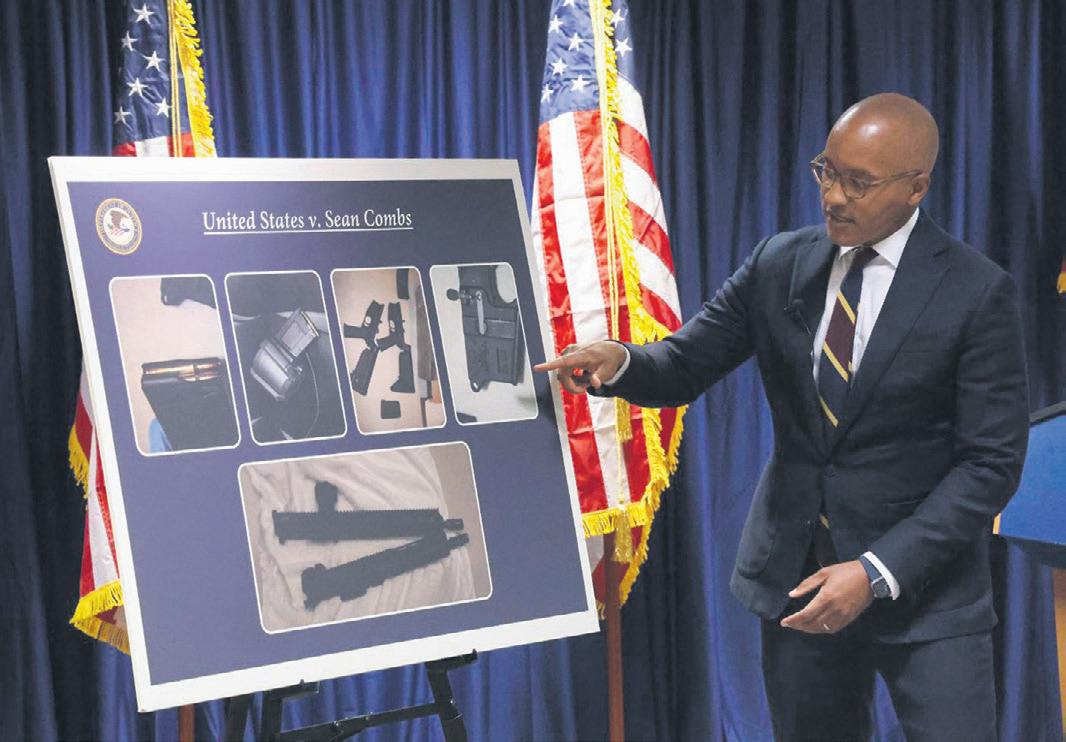

By THE STAR STAFF
Economic Development Bank (EDB) President Luis Alemañy González shared recent data earlier this week on the impact and growth of small and midsize enterprises (SMEs) in Puerto Rico with respect to the first quarter of 2024.
“SMEs play an important role in the economic development of any society. Their contribution to employment and the economic activity of the island is significant, with 44% of private employment covered by companies with 49 employees or less,” Alemañy González said. “Over 7,500 SME establishments were created in the past three years, with the retail, health, professional services, and restaurant and hospitality services sectors standing out.”
The official also noted that companies that hire 50 or more employees have a coverage of 56% of the establishments, according to the most recent data available in the first quarter of 2024.
“Also, 96% of private establishments in Puerto Rico are SMEs and are concentrated mostly in the retail trade industry, where, in addition, the majority of jobs were accounted
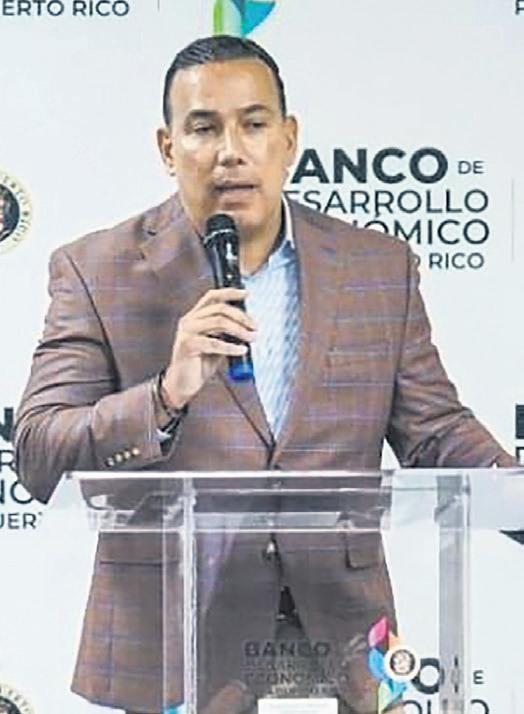
for,” Alemañy González said.
SMEs are concentrated, taking into consideration the number of establishments, in those that have fewer than five employees, reaching a total of 30,438 establishments and employing 54,185 workers. This group showed a 6.4% increase in the number of establishments and a 3.2% increase in jobs.
In second place are establishments with five to nine employees, which make up a total of 9,773 establishments and provide 64,132 jobs, which saw a 0.2% increase in the number of establishments and a 0.6% increase in jobs.
Meanwhile, in third place are establishments that employ between 10 and 19 workers, which have 6,283 establishments and 83,679 workers, and showed growth of 1.5% in establishments and 2.1% in jobs.
Lastly, there are those with 20 to 49 employees, which have 4,220 establishments with 126,807 jobs. This group showed a 3.5% increase in establishments and 4.8% in the number of jobs.
During the first quarter of 2024, of the total of 53,088 private establishments, 30,438 employed less than five people, 9,773 had five to nine employees, 6,283 had 10 to 19 employees, 4,220 had 20 to 49 employees, and 2,374 were establishments with 50 or more employees, the latter representing 4% of the total number of establishments.
“In other words, smaller companies, which individually employ fewer than 50 people, total 50,714 establishments, covering 96% of the total number of companies established in Puerto Rico. This proportion changes when we talk about covered private employment, according to the latest information provided by the Quarterly Census of Employment and Wages (QCEW),” Alemañy González added.
The average number of jobs covered in the private sector, also during the first quarter of 2024, was 744,825, of which 328,803 jobs or 44% correspond to people who work in establishments with fewer than 50 employees, and 416,022, 56%, work in private companies with payrolls of 50 employees or more.
The news came a day after the International Monetary Fund issued a report stating that Puerto Rico and Haiti are declining economically.
Wall Street’s top regulator on Wednesday unanimously voted to allow stock exchanges to price many shares in increments of half a penny, rather than the current minimum size of 1 cent, aiming to promote more competitive pricing and reduce investor costs on the $55 trillion U.S. equities markets.
The new rule should also help stock exchanges compete with off-exchange trading venues, which represent nearly half of trading volume and can already offer smaller price increments, officials at the U.S. Securities and Exchange Commission said.
After the vote by the commission’s five members, SEC Chair Gary Gensler said the new rules would promote transparency, fairness and efficiency. “That goes to the heart of the SEC’s mission. The reforms are pro-investors. They are pro-capital formation,” he said in a statement.
The new rule marks another step in the SEC’s plans to adopt what would be the most important market structure reforms in nearly 20 years. However, the SEC faces election-year headwinds in completing all the changes unveiled in 2022.
The rules apply to the highly technical space between prices stock sellers are willing to accept in a trade and what buyers are willing to pay, known as the bid-ask spread.
Allowing prices to be quoted in increments, or “tick sizes,” of less than a penny will result in narrower spreads, cutting transaction costs and allowing for more aggressive pricing, according to the SEC.
“This is an industry where people will sell their grandmothers for four basis points,” James Angel, a professor at Georgetown University’s McDonough School of Business, said ahead of the vote. “But for the retail investor who buys and sells a share here and there, they’re not gonna notice a difference.”
Prior to the vote, SEC officials told reporters that 2023 data showed that as many as 1,700 stocks would have qualified as “tick constrained” under the rule due to be adopted, meaning a weighted average of the spread was 1.5 cents or less over a certain period.
The SEC’s decision not to include pricing increments smaller than half a cent represents a likely win for industry, which had favored the half-penny increment and objected to sizes included in the 2022 proposal that were as small as a fifth or a tenth of a cent.
The changes adopted Wednesday will also further limit the fees that stock exchanges can charge for access to their marketplaces, denying them a share of revenue.
In a statement, Nasdaq said it was still assessing the rule but warned it would cause “serious harm” on the strength of stock markets in the long term.
“Our initial assessment suggests that the commission’s rules lack foresight and do not consider the intricate dynamics of the equity market, ignoring the concerns expressed by a diverse array of market participants,” it said.
However, Bryan Corbett, president of the Managed Funds Association, an investment industry lobby group
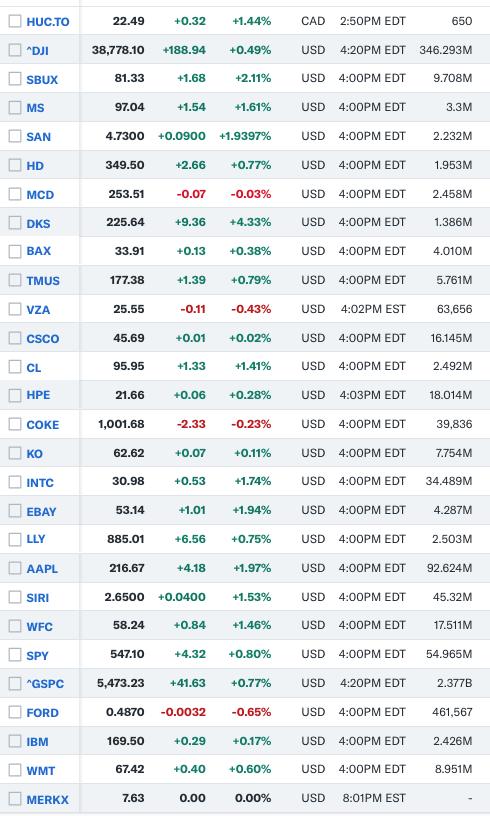
which has sued aggressively to block other SEC regulations during Gensler’s tenure, welcomed the change, saying in a statement that investors would benefit from improved market liquidity, efficiency and resiliency.
In reacting to the initial proposal, market maker Citadel Securities had forcefully criticized the SEC’s market structure proposals, saying tick sizes smaller than half a penny threatened to reduce liquidity and worsen investor panic in times of stress. The company did not immediately respond to a request for comment.
In general terms, market liquidity suppliers like Citadel stand to benefit from wider tick sizes, according to Georgetown’s Angel.
The new rules are due



to take effect in November 2025.
They SEC’s market structure reforms are in part driven by the GameStop trading frenzy of 2021, in which retail traders suffered substantial losses.
The agency last year shortened the trading settlement cycle to help reduce default risk and in March of this year adopted rules requiring expanded public reporting on the quality of trade executions by broker-dealers and others.

By PATRICK KINGSLEY
Israel’s attack on pagers and other wireless devices belonging to Hezbollah was a tactical success that had no clear strategic impact, analysts say.
While it embarrassed Hezbollah and appeared to incapacitate many of its members, the attack has so far not altered the military balance along the Israel-Lebanon border, where more than 100,000 civilians on either side have been displaced by a low-intensity battle. Hezbollah and the Israeli military remained locked in the same pattern, exchanging missiles and artillery fire Wednesday at a tempo in keeping with the daily skirmishes fought between the sides since October.
Although the attack Tuesday was an eye-catching demonstration of Israel’s technological prowess, Israel has so far not sought to capitalize on the confusion it sowed by initiating a decisive blow against Hezbollah and invading Lebanon. A second wave of blasts was heard across Lebanon on Wednesday, reportedly caused by exploding walkie-talkies and other devices, but the Israeli military did not appear to be preparing for an imminent ground invasion.
And if the pager attack impressed many Israelis, some of whom had criticized their government for failing to stop Hezbollah’s strikes, their core frustration remained: Hezbollah is still entrenched on Israel’s northern border, preventing tens of thousands of residents of northern Israel from returning home.
“This is an amazing tactical event,” said Miri Eisin, a fellow at the International Institute for Counter-Terrorism, an Israelbased research organization.
“But not a single Hezbollah fighter is going to move because of this,” said Eisin, a former senior intelligence officer. “Having amazing capabilities does not make a strategy.”
The intricacy of the attack has restored some of the prestige and aura that Israel’s intelligence agencies lost on Oct. 7, when Hamas led a surprise attack on Israel that the Israeli military failed to predict or prepare for. Among Israelis, the devastation caused by Hamas’ attack dented their trust in the military leadership, and it has since prompted the resignation of the military intelligence chief, as well as the head of its main signal intelligence agency.
Still, Israelis are divided over whether

Mourners walk with a coffin during a funeral for four killed in the pager attack, in Beirut, on Wednesday, Sept. 18, 2024. Israel and Lebanon on Wednesday were tensely awaiting a potential response by Hezbollah and its allies after at least 12 people were killed and thousands more injured in Lebanon in an apparently coordinated attack that targeted members of the group by blowing up their pagers. (Diego Ibarra Sánchez/The New York Times)
the attack was born of short-term opportunism or long-term forethought. Some believe that Israeli commanders feared that their Hezbollah counterparts had recently discovered Israel’s ability to sabotage the pagers, prompting Israeli commanders to immediately blow them up or risk losing the capability forever.
Others say Israel had a specific strategic intent. Israel may have hoped that the attack’s brazenness and sophistication would ultimately make Hezbollah more amenable to a cease-fire in the coming weeks, if not immediately.
“The goal of the operation, if Israel was behind it as Hezbollah claims, may have been to show Hezbollah that it will pay a very high price if it continues its attacks on Israel instead of reaching an agreement,” said Maj. Gen. Amos Yadlin, a former head of Israel’s military intelligence directorate.
Hezbollah began firing on Israel in early October in solidarity with Hamas, after its Palestinian ally raided southern Israel, prompting a large-scale Israeli counterattack on the Gaza Strip. Since then, Hez-
bollah has tied its fate to that of Hamas, vowing that it will not stop fighting until Israel withdraws from Gaza.
Given the connection, officials on either side of the border have hoped for months that a truce in Gaza would lead to a parallel agreement in Lebanon. U.S. and French mediators, led by Amos Hochstein, a U.S. envoy, have shuttled between Beirut and Jerusalem, preparing the ground for a truce between Israel and Hezbollah in the event of a deal in Gaza.
The expectation was that the Hezbollah war would end without the need for a bigger Israeli attack on Lebanon, as long as a solution could be found in Gaza.
With negotiations over Gaza now at an impasse, the Israeli leadership faces rising domestic pressure to find another way of coercing Hezbollah to stand down.
As a result, the Israeli leadership has recently intensified its public focus on Hezbollah, with the country’s defense minister, Yoav Gallant, warning this week that “military action” was “the only way” to end the conflict.
The pager attack appeared to make good on that warning. Analysts said it had been an attempt to persuade Hezbollah to disentangle its fate from that of Hamas and, in doing so, end the northern war without waiting for a resolution in the south.
“The point is to disconnect the war Hezbollah declared on Israel from the war with Hamas,” Yadlin said.
The operation gives Hochstein “another tool to use when speaking with Hezbollah: ‘You better reach an agreement, or you’ll face more substantial and surprising attacks,’” Yadlin said.
Some are more skeptical, arguing that Hezbollah is unlikely to change course, even if it has been degraded and disoriented by the attack.
Avi Issacharoff, an Israeli columnist, wrote in a commentary Wednesday that the assault “will not prompt Hezbollah to stop its attacks on Israel’s northern civilian communities, but to escalate them.” Issacharoff added, “We appear to be in for days and possibly even weeks of escalating hostilities that might ultimately force the army to launch a ground operation, even as the army is still operating on the ground in Gaza and is still taking losses.”
Hezbollah views itself as the most influential Iranian ally in the Middle East and would try to avoid creating the perception that it had abandoned Hamas, according to Sima Shine, a former senior officer in the Mossad, Israel’s foreign intelligence agency.
“I don’t see it happening,” said Shine, an analyst at the Institute for National Security Studies, an Israeli research organization. “It is very important for them to be the head of all the proxies in the region, the one who gives direction to others, the one who trains others from time to time.”
More generally, the attack also highlighted the dissonance between the discipline of Israel’s intelligence agencies, which have the ability to plan operations months or even years ahead, and the messy short-term thinking of Israel’s political leadership.
The attack followed days of reports in the Israeli news media about an intention by Prime Minister Benjamin Netanyahu to fire his defense minister, even as Gallant was overseeing the planned operation in Lebanon.
“This is a very strange situation,” Shine said. It shows “such a gap between the politicians and the security establishment.”
By CLAIRE FU and DAISUKE WAKABAYASHI
For more than a decade, Li Dongmei operated a series of kindergartens and schools for young children, withstanding the realities of China’s declining birthrate. She finally faced the music in 2020.
The shrinking number of children meant ever smaller enrollments of babies and toddlers at her schools. The social and economic ruptures of the COVID-19 pandemic were the breaking point, and she shifted her focus to a different and more abundant set of pupils: the elderly.
At her education center in Jinan, a city in eastern China, she now offers singing, dancing, music and art classes for seniors. She organizes activities and educational trips for her students. Unlike schoolchildren who have summer and winter holidays, Li said, older people take classes all year round. And the classes are full.
“The biggest economy is the silver economy,” said Li, 36. “It is bigger than the children’s market.”
China’s aging society is expected to deplete the vigor and vitality of the world’s second-largest economy in the coming decades. But the adverse effects of demographic change are already apparent for Chinese businesses that cater to children. Many are scaling back operations or changing course.
Dairy companies that produced formula for China’s infants are now developing powdered milks for seniors. Proprietors of preschools and kindergartens are closing those facilities to start senior care centers. A technology firm that made devices for parents to track their young children is now designing products allowing grown children to keep tabs on their aging mothers and fathers.
In 2022, China’s population shrank for the first time since 1961. Deaths outnumbered births again last year, and the number of 60-year-olds topped 290 million, or one in every five Chinese people. China’s National Health Commission estimates that the country’s elderly population will grow to more than 400 million by around 2035.
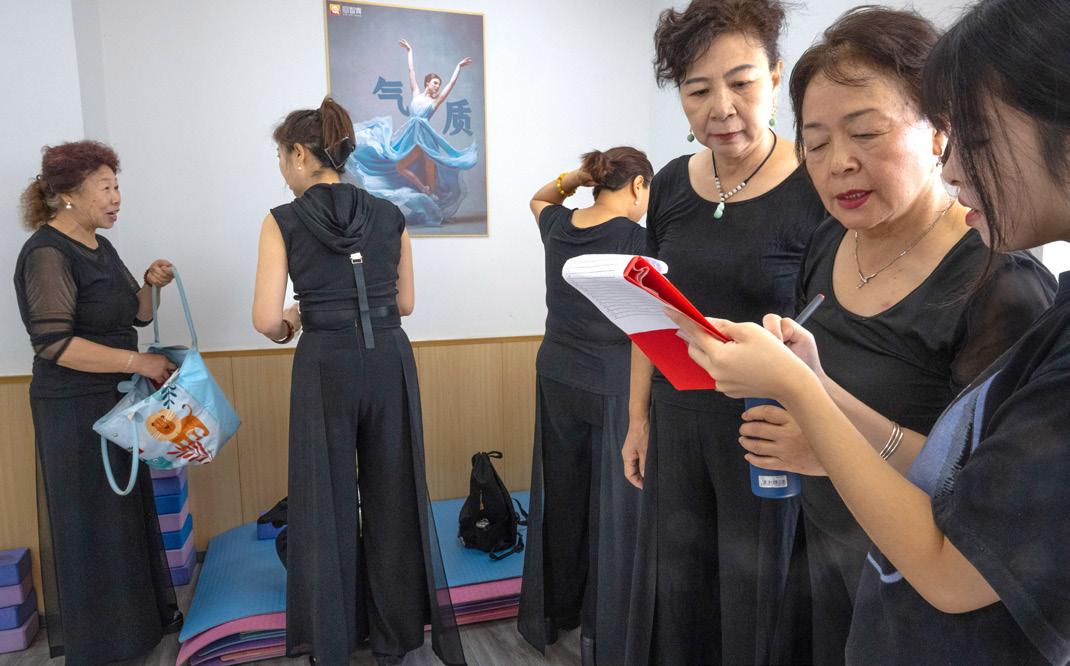
Older women register for classes at an education center in Jinan, in eastern China, Sept. 6, 2024. China’s shrinking population poses threats to growth but has opened opportunities for businesses that serve older adults. (Gilles Sabrié/The New York Times)
To address its aging population, China announced Friday that it had approved a plan to raise the country’s statutory retirement age for the first time since the 1950s.
China has tried for years to stave off its demographic crisis. It fully lifted its one-child policy in 2016 and offered a range of incentives to encourage people to have more children. But the country’s recent economic troubles have given young people more reason to question whether they can afford bigger families.
One concern is that fewer babies will lead to a smaller labor force that will whittle away at tax revenue and add stress to health care and pensions.
In a 2021 directive, China’s State Council, or Cabinet, called for “actively fostering the silver economy” and developing “elderly-friendly industries.”
Li, the education executive who has shut her schools for children, now offers a variety of classes for senior, including one on how to strut like fashion models on the catwalk. Li said she teaches her students how to become online influencers with lessons on creating short videos.
Also eyeing older customers, Xinjiang Tianrun Dairy, a state-owned company, acquired a smaller rival last year to focus on creating powdered milk for
middle-aged and elderly consumers.
Nestlé, the Swiss food and beverage maker, cited the sharp decline in births in China last year when it announced plans to close its infant formula factory in Ireland. It and Chinese dairy firms have introduced special powdered milk products with health benefits for seniors including preventing muscle atrophy, improving sleep and helping digestion.
A leading Chinese dairy company, Yili Group, is promoting its products for seniors through television commercials. In one, a young couple buys specialized powdered milk — without cane sugar — as a gift for relatives at Chinese New Year.
It’s not just milk. The Chinese cybersecurity firm 360 Security Technology since 2013 has been making smartwatches for kids that allow parents to contact their children and monitor their whereabouts and internet use.
In 2019, citing “the advent of an aging society,”
the company introduced smartwatches for seniors with features such as blood pressure and heart rate monitors, location tracking for concerned family members and one-click emergency calling.
The size of the growing seniors market is forcing the hand of Chinese companies that once targeted children and their parents, said He-Ling Shi, an associate economics professor at Monash University in Melbourne, Australia.
“They have no choice,” he said.
Births in China fell to 9 million in 2023, down about 6% from the previous year. And the number of preschool children plummeted nearly 12%, according to China’s Ministry of Education.
Cai Hao opened a maternity and baby goods store in 2018 in Shijiazhuang, a city in China’s northern Hebei province. His store initially carried clothes and footwear, for infants and toddlers.
A surge of newborns in the years after China adopted a two-child policy soon fizzled out, and the pandemic hurt foot traffic into the store.
“There were no customers,” Cai said. “Without children, customers had no reason to shop here.”
Then a few years ago, customers started to ask whether his store carried powdered milk for older people. Figuring he didn’t have much to lose, Cai began to stock it. Sales grew so he added different varieties including one for diabetics and another for people with hypertension.
Cai said that he never made a strategic decision to start targeting older customers, but that about 10% of his sales now come from dairy products for seniors.
He added, “Who wouldn’t be willing to sell more if they could?”




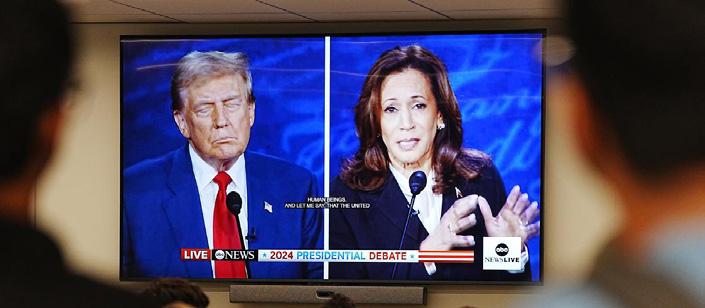
Former President Donald Trump and Vice President Kamala Harris are seen on a screen during their presidential debate, at a watch party on the NYU campus in New York, on Tuesday, Sept. 10, 2024. (Hiroko Masuike/The New York Times)
By JAMELLE BOUIE
The American presidency is a strange office. It is the most powerful elected position in the world. To hold the position is to lead a nation of more than 330 million people with a vast and intricate government that touches every aspect of daily life. You are responsible for trillions of dollars in spending, and you must manage the actions of countless civil servants, from your direct appointees — who number in the thousands — to their subordinates. You wield the full might of the U.S. military and have direct access to a device that could, with the press of a few keys, end life as we know it.
From the moment you open your eyes to begin a new day to the moment you close them for a few hours of slumber, your conscious mind is occupied by an endless storm of crises and concerns. You decide which need your direct attention and which can go to the relevant aide or secretary. You must find the time — your most precious resource — to plan, prioritize and categorize the problems and opportunities that come your way. And you will be judged for the success or failure of your administration on any number of issues — whether or not you were responsible, whether or not you had any control over them.
The buck, after all, has to stop somewhere. But here is where it gets strange. All that power comes with limits so hard that it can feel, at times, like you don’t have any at all. You can spend only what Congress allows you to spend. You have discretion to execute the law but that can be curbed, even erased, by a vote of the Supreme Court.
There are things you can do by fiat — otherwise known as executive orders — but those can be overturned by a court or reversed by the next administration or resisted outright by hostile state governments. Lasting change, if that’s what you want, requires a vote of the legislature, which is to say that you have to put your goals in the hands of people who may not have your interests in mind, whether or not you share the same party. You can be a towering figure abroad — leading the nations of the free world in a crusade against aggression — and a fumbling, even weak one at home. Our constitutional order may be unbalanced, with an executive and judiciary
whose influence seems to outstrip that of the legislature, but the checks and balances that do exist can still stymie the plans of an ambitious president.
Those of us who observe and study American politics are more than aware of all this when we try to analyze and explain a given president. But rarely does the reality of the office ever factor into our quadrennial struggle over which man or woman will hold it.
Consider the most recent presidential debate. The moderators, David Muir and Linsey Davis of ABC News, pressed the candidates, Kamala Harris and Donald Trump, on a number of policy questions. Topics included the economy, inflation, immigration, border security, the war in Ukraine and Israel’s war in the Gaza Strip. The moderators — perhaps following the concerns of undecided voters who say they want more specificity — scrutinized the candidates on their plans and, when appropriate, asked for details.
But missing from this long menu of questions was anything about the day-to-day experience of the job — of managing the executive branch, of dealing with crises, of negotiating with Congress, of, in a word, governing. This despite the fact that these candidates have intimate experience with all of the above, one by virtue of serving as vice president and seeing the position up close, the other by virtue of having been president.
To the extent that these issues were raised at all, they came as asides. Trump, for example, briefly mentioned that he fired a number of officials in his administration. “I fired most of those people,” he said, referring to his former national security adviser and secretary of defense, who now oppose his candidacy. “Not so graciously. They did bad things or a bad job. I fired them.” He then hit Harris and Joe Biden for not firing anyone. “They never fired one person.”
Trump was mostly ranting at this point. Still, it was a missed opportunity to discuss each candidate’s respective vision of the power of the presidency. Is the White House working if the president has to fire, on an almost regular basis, high-level officials? What does it say about his judgment? What process, if any, does he have for hiring subordinates?
If you were one of the more than 67 million Americans who watched the debate on Tuesday, you learned about Harris’ proposal to give tax credits to young families and small business owners. You heard Trump blame migrants and refugees for every problem facing the United States. You heard them talk about plans and “concepts of plans.” But for all the back and forth between the two candidates, there was little said about how either of them would actually make decisions — of how they would be president.
The most you could do, as a viewer, was glean generalities from how they presented themselves. Trump, it’s clear, would govern as an authoritarian with little interest in the rule of law. And Harris, it appears, would continue the Biden approach of governing, as much as possible, with an eye toward consensus and coalition building.
Americans deserve a much fuller conversation than they ever get about the actual job at hand. Yes, it is important to know the goals and priorities of the people running for
president. They should, when appropriate, talk about policy. But the fact of the matter is that a successful presidency is much more about organization, vision and values than it is the scope of a given legislative package.
The contingencies of politics are such that policies will change depending on everything from the size of the governing party’s congressional majority — or lack thereof — to the particular interests of the particular lawmakers. To answer the qualitative questions, on the other hand, is to get a good, more durable sense of how one candidate or the other might perform when the pressure is on or how they might prioritize when the pressure is off.
The presidency, as I said, is a strange office. Our presidential campaigns should probably be more focused on how candidates deal with what makes it so.



The San Juan Daily Star Thursday, September 19, 2024 13
POR CYBERNEWS
SAN JUAN – El secretario del Departamento de Justicia (DJ), Domingo Emanuelli Hernández, declinó este miércoles, a comparecer a una vista pública de las comisiones senatoriales que investigan la excarcelación de Hermes Ávila Vázquez.
“Conforme la discreción que ostenta el secretario de Justicia de brindar asesoramiento a la Asamblea Legislativa según lo estime pertinente, le informo que no estaremos compareciendo a la vista. Si bien el proceso investigativo de la Rama Ejecutiva —el cual está encomendado al Departamento de Justicia— no ha concluido, ello no constituye un impedimento para que prosiga la investigación del Poder Legislativo, que es un proceso separado y de naturaleza distinta. Los asuntos atendidos por el Departamento de Justicia en torno a los hechos relacionados
con la excarcelación del señor Hermes Ávila Vázquez serán informados al pueblo de Puerto Rico oportunamente”, lee la misiva emitida hoy por el secretario en respuesta a una citación oficial que recibió esta semana por parte de la Comisión de Iniciativas Comunitarias, Salud Mental y Adicción del Senado.
El secretario reconoció la labor investigativa que han efectuado las Comisiones de Iniciativas Comunitarias, Salud Mental y Adicción, y de lo Jurídico y Desarrollo Económico de dicho cuerpo legislativo. Asimismo, les exhortó a que “dicha encomienda culmine con un reflejo cabal del estudio efectuado y recomendaciones que beneficien a todos los sectores del país”.
En su etapa final el proceso investigativo de naturaleza criminal sobre excarcelación de Hermes Ávila Vázquez
El proceso investigativo de naturaleza criminal que
encomendó el secretario del Departamento de Justicia sobre la excarcelación del convicto Hermes Ávila Vázquez se encuentra en su etapa final.
“En este momento, solo puedo confirmar que el proceso está por concluir. Una vez tenga la oportunidad de evaluar el informe de nuestra División de Integridad Pública y Oficina de Asuntos del Contralor, comunicaré el resultado públicamente con la transparencia que me caracteriza como secretario del Departamento de Justicia de Puerto Rico”, confirmó el secretario.
Fiscales de la División de Integridad Pública y Oficina de Asuntos del Contralor han estado entrevistando a todas las personas que pueden brindar información o evidencia que contribuya al descubrimiento de la verdad sobre el caso del feminicida, que ha causado gran conmoción en la Isla. Esto incluye a las personas entrevistadas durante las vistas públicas en el Senado, así como muchas otras.
Abren paso a la conversación sobre terapia psicodélica en Puerto Rico
SAN JUAN – La entidad sin fines de lucro, Pravan Foundation, dedicada a aliviar la crisis de salud mental en Puerto Rico, celebró la semana pasada una conferencia benéfica titulada: “Explorando las Fronteras de la Medicina Psicodélica”. El evento contó con la participación del investigador Rick Doblin, PhD por la Universidad de Harvard y fundador de MAPS.
“Estoy muy contento de haber sido invitado por primera vez a la isla y me siento muy esperanzado con la oportunidad y las posibilidades que tiene Puerto Rico de avanzar en la investigación y el tratamiento con estas innovadoras terapias con psicodélicos para aliviar la crisis de salud mental que sufre la isla y el resto del mundo”, expresó Doblin, PhD, en declaraciones escritas.
El evento se llevó a cabo en el teatro de La Casa de
Santurce, donde un grupo selecto de doctores, psicólogos, científicos y empresarios exploraron los avances más recientes en el tratamiento de la salud mental mediante el uso de psicodélicos. La conferencia se centró en cómo estos tratamientos pueden ofrecer soluciones a condiciones como la depresión, la ansiedad y el trastorno de estrés postraumático (TEPT).
David Nissman, abogado especializado, presentó durante la conferencia el marco legal de las sustancias controladas en Puerto Rico, destacando que, aunque la mayoría de los compuestos psicodélicos están clasificados como Schedule I por la FDA, la investigación está permitida y ha mostrado resultados prometedores. Nissman explicó que Puerto Rico tiene la oportunidad de reclasificar estas sustancias para su uso médico, tal como se hizo con el cannabis en 2015.
“La presencia de Rick Doblin en este evento repre-
senta un honor para nosotros y un paso significativo hacia un futuro más saludable para Puerto Rico. Estos tratamientos emergentes no solo tienen el potencial de transformar la calidad de vida de miles de personas, sino que también serían un canal positivo a la economía mediante la innovación en el sector salud”, expresó la doctora Tania Rivera, directora médica de Pravan Health y cofundadora de la fundación.
Además de generar conciencia sobre el poder transformador de la medicina psicodélica, el evento sirvió como plataforma para apoyar la misión de Pravan Foundation de brindar acceso a tratamientos innovadores para aquellos que enfrentan retos de salud mental en la Isla.
Para más información, los interesados pueden escribir a contact@pravanfoundation.org o llamar al (787) 555-1234. Las donaciones pueden hacerse a través del enlace disponible en la página de la fundación.

September 19, 2024 14
By BEN SISARIO
When the first Latin Grammy Awards were held in 2000, they celebrated the diversity of sounds from throughout Latin America, and arrived with the hype — and hope — that a new generation of stars would cross over into the American pop mainstream. Among the big names that year were Ricky Martin, Marc Anthony and a rising young singer-songwriter named Shakira.
Now, for the show’s 25th annual iteration, the indefinably broad category of Latin music represents a sprawling segment of the industry that, thanks largely to streaming, has become a truly global phenomenon. The latest nominations, announced Tuesday by the Latin Recording Academy, are dominated by Bad Bunny and Karol G, who sell out arenas, draw clicks by the billions and have eight nods apiece.
Juan Luis Guerra, a veteran Dominican

songwriter, has five nominations. Coming in with four each are Kany García, a Puerto Rican singer; Feid, from Colombia; Carin León, from Mexico; and Kali Uchis, a Colombian American singer-songwriter. For the second year in a row, however, the top nominee overall is a behind-the-scenes figure: Edgar Barrera, a Mexican American songwriter and producer, who has a total of nine nods.
Another songwriter, Kevyn Mauricio Cruz, known as Keityn, who often works with Barrera, has six nominations.
A mere list of the nominees gives a sense of the geographic diversity of the Latin field, and of the cross-pollination among genres and regions that has become increasingly common (and popular).
Rican rapper Residente will go up against releases by Camilo, León, Laferte, Kany García, Ángela Aguilar and Xande de Pilares.
Nominations for best new artist went to Agris, Kevin Aguilar, Darumas, Nicolle Horbath, Latin Mafia, Cacá Magalhães, Os Garotin, Iñigo Quintero, Sofi Saar and Ela Taubert.
More than 23,000 entries were submitted for the current awards, which cover recordings released from June 1, 2023, to May 31, 2024. To qualify, songs must be new and contain lyrics in Spanish, Portuguese or any native regional dialect, according to the academy.
This year’s awards will be held Nov. 14 in Miami.
Karol G at the MTV VMAs at the UBS arena in New York on Sept. 12, 2024. Karol G and Bad Bunny earned eight nods apiece for the 25th annual awards, although the Mexican American songwriter and producer Edgar Barrera received the most nominations overall, with nine. (Nina Westervelt/ The New York Times)
Barrera — also known as Edge — has worked closely with Karol G, the neon-maned Colombian singer who has quickly become an A-list pop star. (At the MTV Video Music Awards last week, she danced in the audience with Taylor Swift and Cami la Cabello while performing a recent track, “Si Antes Te Hubiera Conoci do.”) Among the nominations that Bar rera and Karol G share are song and record of the year for her track “Mi Ex Tenía Razón” (“My Ex Was Right”). In the record of the year catego ry, they will compete against streaming hits by Bad Bunny (“Monaco”), Brazil ian singer Anitta (“Mil Veces”), and Uchis and Mexican star Peso Pluma (“Igual Que un Ángel”), along with a salsa-tinged collaboration between Colombian pop star Camilo and cowboy-hatted Mexican artist León (“Una Vida Pasada”). Also in the category are tracks by Cimafunk and Colombian band Monsieur Periné (“Catalina”), Jorge Drexler (“Derrumbe”), Fonseca and salsa band Grupo Niche (“Con Dinero y Sin Dinero”), Guerra and his group 4.40 (“Mambo 23 “) and Chilean performer Mon Laferte, who has long explored Mexican styles (“Tenochtitlán”).
In addition to Karol G’s “Mi Ex,” Barrera has credits on two other tunes up for song of the year: “(Entre Paréntesis),” performed by Shakira and Grupo Frontera, and “Según Quién,” by Maluma and León. That category also includes “Caracas en el 2000,” performed by Elena Rose, Danny Ocean and Jerry Di; “Te Lo Agradezco,” by Kany García and León; “313,” a partly spoken track by Residente, Silvia Pérez Cruz and actress Penélope Cruz; “A La Mitad,” sung by Maura Nava for a new TV version of “Zorro”; and songs written and performed by Drexler, Daymé Arocena and Vicente García, and by Gian Marco and Rubén Blades. (Record of the year goes to the performers and producers of a single track; song of the year is a songwriter’s category.)
In album of the year, Karol G, Shakira, Guerra and Puerto
Bad Bunny at the Metropolitan Museum of Art’s Costume Ins titute benefit gala in New York, May 6, 2024. (Nina Westervelt/ The New York Times)

que se describe a continuación:
LEGAL NOTICE
ESTADO LIBRE ASOCIADO DE PUERTO RICO TRIBUNAL DE PRIMERA INSTANCIA
SALA SUPERIOR DE SAN JUAN
JUAN ENRIQUE
QUIRÓS DELGADO
Parte Promovente
EX-PARTE
Civil Núm.: SJ2024CV07103.
Sobre: EXPEDIENTE DE DOMINIO. EDICTO. ESTADOS UNIDOS DE AMÉRICA, EL PRESIDENTE DE LOS EE.UU., EL ESTADO LIBRE ASOCIADO DE PUERTO RICO, SS.
(T.S.P.R. 8487)
43 Zuania Urb Parque de Villa Caparra Guaynabo PR 00966
Cel: (787) 409-2713
E-mail: ivonbelsi@gmail.com
SE LE APERCIBE, que, si no compareciere usted a contestar o alegar sobre dicha demanda, dentro del término indicado podrá dictarse sentencia en rebeldía en su contra, concediendo el remedio solicitado en la demanda. En San Juan, Puerto Rico, a 6 de septiembre de 2024. GRISELDA RODRÍGUEZ COLLADO, SECRETARIA REGIONAL. GLORIAM MARTÍNEZ RIVERA, SECRETARIA DE SERVICIOS A SALA. LEGAL NOTICE
ESTADO LIBRE ASOCIADO DE PUERTO RICO TRIBUNAL DE PRIMERA INSTANCIA SALA SUPERIOR DE ARECIBO
ORIENTAL BANK
Demandante Vs. SUCESIÓN DE DIONISIO MARTÍNEZ CALIXTO COMPUESTA POR SUS HEREDEROS CONOCIDOS COMO JULIA MARTÍNEZ CALIXTO Y MIGUEL MARTÍNEZ CALIXTO; SUCESIÓN DE PROVIDENCIA CASTILLO RODRÍGUEZ COMPUESTA POR SU HEREDERO CONOCIDO COMO JOSÉ LUIS RIVERA CASTILLO; FULANO DE TAL Y SUTANA DE TAL COMO HEREDEROS DESCONOCIDOS Y/O PARTES CON INTERÉS EN DICHAS SUCESIONES; ESTADOS UNIDOS DE AMÉRICA Demandados
A: Las personas ignoradas o desconocidas; Luis D Bonilla Alvarado a quienes pueda perjudicar la inscripción solicitada del dominio de la propiedad en el Registro de la Propiedad de San Juan Sección Quinta. Si los que hubieran de ser citados personalmente estuvieren ausentes de Puerto Rico y se supiere su paradero se citarán por medio del mismo edicto y al tiempo de hacerse la primera publicación del edicto se les enviará copia de la citación por correo certificado, a su dirección conocida. Si se ignorare su paradero y así quedase probado se les citará exclusivamente mediante el referido edicto. El presente edicto se publicará en tres (3) ocasiones dentro del término de veinte (20) días en un periódico de circulación general diaria en Puerto Rico, a fin de que comparezcan si quieren alegar su derecho. La descripción de la finca objeto del caso es: Propiedad situada en Calle Villa 7 #315 interior, Embalse San José San Juan Puerto Rico 00923. Consiste en un solar de aproximadamente doscientos diecisiete (217) metros cuadrados y una casa de Madera y Zinc ocupada por tres de las personas arriba nombradas. La ubicación del terreno y la vivienda corresponde en el Registro de la Propiedad de Puerto Rico a SJ05 - San Juan, Sección Quinta (V), Sabana Llana San José, El Embalse (PRHA-20) Comunidad Rural. En el plazo improrrogable de veinte (20) días a contar de la fecha de la última publicación del edicto, los interesados y/o las partes citadas, o en su defecto los organismos públicos afectados, podrán comparecer ante el tribunal, a fin de alegar lo que en derecho proceda. Representa a la parte peticionaria la abogada, cuyo nombre y dirección es: Lcda. Edna Ivonne Beltrán Silvagnoli
Civil Núm.: AR2024CV00050. Sobre: COBRO DE DINERO Y EJECUCIÓN DE HIPOTECA. EDICTO ANUNCIANDO PRIMERA, SEGUNDA Y TERCERA SUBASTA. El Alguacil que suscribe, funcionario del Tribunal de la Sala Superior de Arecibo, Puerto Rico, por la presente anuncia y hace saber al público en general que en cumplimiento con la Sentencia dictada en este caso con fecha 28 de mayo de 2024, y según Orden y Mandamiento del 15 de julio de 2024 librado por este honorable Tribunal, procederé a vender en pública subasta al mejor postor, y por dinero en efectivo, cheque certificado o giro postal a nombre del Alguacil del Tribunal con todo título derecho y/o interés de la parte demandada sobre la propiedad
URBANA: Solar C-2, radicado en la Urbanización Los Pinos, localizada en el Barrio Santana del Municipio de Arecibo, Puerto Rico, situada en la calle número 15. Tiene una cabida de 365.3229 metros cuadrados. Linda por el NORTE, en 15.257 metros lineales con la calle número 15; por el SUR, en 15.250 metros lineales con los solares B-17 y B-18; por el ESTE, en 23.720 metros lineales con el solar C-1; y por el OESTE, en 24.00 metros lineales con el solar C-3. Enclava una casa en hormigón de una planta, con tres dormitorios, dos baños, sala-comedor, cocina, balcón y marquesina doble. Este solar se encuentra afectado en todo su frente, a lo largo de la colindancia Norte, por una franja de servidumbre de 1.50 metros de ancho a favor de la Puerto Rico Telephone Company. Finca Número 47,149, inscrita al folio 195 del tomo 1226 de Arecibo. Registro de la Propiedad de Puerto Rico, Sección I de Arecibo. Dirección Física: URB. LOS PINOS 276 CALLE PINO PONDEROSA, ARECIBO PR 00612. Se anuncia por medio de este edicto que la PRIMERA SUBASTA habrá de celebrarse el día 17 DE OCTUBRE DE 2024, A LAS 11:00 DE LA MAÑANA, en mi oficina sita en el edificio que ocupa el Tribunal Superior de Puerto Rico, Sala Superior de Arecibo. Siendo ésta la primera subasta que se celebrará en este caso, será el precio mínimo aceptable como oferta en la Primera Subasta, eso es el tipo mínimo pactado en la Escritura de Hipoteca para la propiedad, la suma de $137,035.03. De no haber remanente o adjudicación en esta primera subasta por dicha suma mínima, se celebrará una SEGUNDA SUBASTA el día 24 DE OCTUBRE DE 2024, A LAS 11:00 DE LA MAÑANA, en el mismo lugar antes señalado en la cual el precio mínimo serán dos terceras (2/3) partes del tipo mínimo pactado en la escritura de hipoteca, la suma de $91,356.68. De no haber remanente o adjudicación en esta segunda subasta por el tipo mínimo indicado en el párrafo anterior, se celebrará una TERCERA SUBASTA en el mismo lugar antes señalado el día 31 DE OCTUBRE DE 2024, A LAS 11:00 DE LA MAÑANA, en la cual el tipo mínimo aceptable como oferta será la mitad (1/2) del precio mínimo pactado en la escritura de hipoteca, la suma de $68,517.15. Si se declare desierta la tercera subasta se adjudicará la finca a favor del acreedor por la totalidad de la cantidad adeudada si ésta es igual o menor que el monto
del tipo mínimo de la tercera subasta, si el tribunal lo estima conveniente. Se abonará dicho monto a la cantidad adeudada si ésta es mayor. Con el importe de esta venta se habrá de satisfacer el balance de la sentencia dictada en este caso el cual consiste en el pago de $126,786.93 de principal, más intereses convenidos al 4.2500% anual más recargos hasta su pago, más el pago de lo pactado en la sentencia para costas, gastos y honorarios de abogados. Se dispone que una vez celebrada la subasta y vendido el inmueble relacionado, el alguacil pondrá en posesión judicial a los nuevos dueños dentro del término de veinte (20) días a partir de la celebración de la Subasta. Si transcurren los referidos veinte (20) días, el tribunal podrá ordenar, sin necesidad de ulterior procedimiento, que se lleve a efecto el desalojo o lanzamiento del ocupante u ocupantes de la finca o de todos los que por orden o tolerancia del demandado/deudor la ocupen. El Alguacil de este Tribunal efectuará el lanzamiento de los ocupantes de ser necesario. Si la subasta es adjudicada a un tercero y luego se deja sin efecto, el tercero a favor de quién se adjudicó la subasta solo tendrá derecho a la devolución del monto consignado más no tendrá derecho a entablar recurso o reclamo adicional alguno (judicial o extrajudicial) contra el demandante y/o el acreedor y/o inversionista, dueño pagaré y/o su abogado. Si se anula la venta, el comprador tendrá derecho a la devolución del depósito de la venta judicial menos los honorarios y costos incurridos en el proceso de venta judicial. No tendrá ningún otro recurso contra el acreedor hipotecario ejecutante ni la representación legal de éste. Por la presente, también se notifica e informa al Secretario de la Vivienda y Desarrollo Urbano de los Estados Unidos (HUD) por éstos contar con una hipoteca a su favor por la suma de $3,161.58, sin intereses, vencedero el día 1 de septiembre de 2048, constituida mediante la escritura número 94, otorgada en San Juan, Puerto Rico, el día 13 de agosto de 2018, ante la notario
Ana E. Gorbea Padró, e inscrita al tomo Karibe de Arecibo, finca número 47,149, inscripción 9na. También, se notifica e informa a Fulano de Tal y Sutano de Tal, personas desconocidas que puedan tener derechos en la propiedad o título objeto de este edicto. La Venta en Pública Subasta de la referida propiedad se verificará libre de toda carga y gravamen posterior que afecte la mencionada
finca, a cuyo efecto se notifica y se hace saber la fecha, hora y sitio de la Primera, Segunda y Tercera Subasta, si eso fuera necesario, a los efectos de cualquier persona o personas con algún interés puedan comparecer a la celebración de dicha Subasta. Se entenderá que todo licitador acepta como bastante la titularidad y que las cargas y gravámenes anteriores y los preferentes, si los hubiere, al crédito del ejecutante continuarán subsistentes. Se entenderá que el rematante los acepta y queda subrogado en la responsabilidad de los mismos, sin destinarse a su extinción el precio del remate. Los autos y todos los documentos correspondientes al procedimiento del caso de epígrafe están disponibles en la Secretaría de este Tribunal durante horas laborables y para la concurrencia de los licitadores expido el presente Edicto que se publicará en un periódico de circulación diaria en toda la Isla de Puerto Rico por espacio dos (2) semanas y por lo menos una vez por semana y se fijará, además, en el Tribunal de Primera Instancia, Alcaldía y la Colecturía de Rentas Internas del Municipio donde se celebrará la Subasta y en la Colecturía más cercana del lugar de la residencia de la parte demandada. EN TESTIMONIO DE LO CUAL, expido el presente que firmo y sello, hoy día 2 de agosto de 2024. Firma Ilegible, ALGUACIL, SALA SUPERIOR DE ARECIBO.
LEGAL NOTICE
ESTADO LIBRE ASOCIADO DE PUERTO RICO TRIBUNAL DE PRIMERA INSTANCIA
SALA SUPERIOR DE BAYAMÓN
BANCO POPULAR DE PUERTO RICO Y SUN WEST MORTGAGE COMPANY, INC. COMO AGENTE DE SERVICIO Demandante Vs. SUCESIÓN DE FLORENTINO RODRÍGUEZ TORRES
T/C/C FLORENTINO TORRES Y SUCESIÓN DE LOLA SEMIDEY
T/C/C DOLORES
SEMIDEY T/C/C DOLORES RODRÍGUEZ
T/C/C DOLORES SEMIDEY RODRÍGUEZ COMPUESTAS POR SU HEREDERO CONOCIDO TITO RODRÍGUEZ SEMIDEY; FULANO DE TAL Y SUTANA DE TAL COMO HEREDEROS DESCONOCIDOS
Y/O PARTES
Demandados
Civil Núm.: BY2018CV03714. Sobre: COBRO DE DINERO Y EJECUCIÓN DE HIPOTECA. EDICTO ANUNCIANDO PRIMERA, SEGUNDA Y TERCERA SUBASTA. El Alguacil que suscribe, funcionario del Tribunal de la Sala Superior de Bayamón, Puerto Rico, por la presente anuncia y hace saber al público en general que en cumplimiento con la Sentencia dictada en este caso con fecha 6 de junio de 2024, y según Orden y Mandamiento del 9 de agosto de 2024 librado por este honorable Tribunal, procederé a vender en pública subasta al mejor postor, y por dinero en efectivo, cheque certificado o giro postal a nombre del Alguacil del Tribunal con todo título derecho y/o interés de la parte demandada sobre la propiedad que se describe a continuación: URBANA: Solar número ciento ocho (108) de la Urbanización Flamingo Hills, situado en el Barrio Pájaros de Bayamón, Puerto Rico, que comprende un área de trescientos sesenta y un (361.00) metros cuadrados. En lindes por el NORTE, con el solar número ciento noventa y nueve (199); por el SUR, con el solar número ciento noventa y siete (197); por el ESTE, con paseo (mall); y por el OESTE, con la calle número siete (7). Contiene una casa residencial de hormigón y bloques para una sola familia. FINCA NÚMERO: 31,625, inscrita al folio 46 del tomo 686 de Bayamón Sur, sección I de Bayamón. Dirección Física: FLAMINGO HILLS SOLAR 108 CALLE 7, BAYAMÓN PR 00956. Se anuncia por medio de este edicto que la PRIMERA SUBASTA habrá de celebrarse el día 21 DE OCTUBRE DE 2024, A LAS 10:30 DE LA MAÑANA, en mi oficina sita en el edificio que ocupa el Tribunal Superior de Puerto Rico, Sala Superior de Bayamón. Siendo ésta la primera subasta que se celebrará en este caso, será el precio mínimo aceptable como oferta en la Primera Subasta, eso es el tipo mínimo pactado en la Escritura de Hipoteca para la propiedad, la suma de $87,100.00. De no haber remanente o adjudicación en esta primera subasta por dicha suma mínima, se celebrará una SEGUNDA SUBASTA el día 28 DE OCTUBRE DE 2024, A LAS 10:30 DE LA MAÑANA, en el mismo lugar antes señalado en la cual el precio mínimo serán dos terceras (2/3) partes del tipo mínimo pactado en la escritura de hipoteca, la suma de $58,066.66. De no haber The
remanente o adjudicación en esta segunda subasta por el tipo mínimo indicado en el párrafo anterior, se celebrará una TERCERA SUBASTA en el mismo lugar antes señalado el día 4 DE NOVIEMBRE DE 2024, A LAS 10:30 DE LA MAÑANA, en la cual el tipo mínimo aceptable como oferta será la mitad (1/2) del precio mínimo pactado en la escritura de hipoteca, la suma de $43,500.00. Si se declare desierta la tercera subasta se adjudicará la finca a favor del acreedor por la totalidad de la cantidad adeudada si ésta es igual o menor que el monto del tipo mínimo de la tercera subasta, si el tribunal lo estima conveniente. Se abonará dicho monto a la cantidad adeudada si ésta es mayor. Con el importe de esta venta se habrá de satisfacer el balance de la sentencia dictada en este caso el cual consiste en el pago de $378,508.89 de principal, más intereses convenidos al 7.0000% anual más recargos hasta su pago, más el pago de lo pactado en la sentencia para costas, gastos y honorarios de abogados al 31 de octubre de 2021. El balance adeudado continúa acumulando intereses al interés anual convenido mencionado anteriormente. Se dispone que una vez celebrada la subasta y vendido el inmueble relacionado, el alguacil pondrá en posesión judicial a los nuevos dueños dentro del término de veinte (20) días a partir de la celebración de la Subasta. Si transcurren los referidos veinte (20) días, el tribunal podrá ordenar, sin necesidad de ulterior procedimiento, que se lleve a efecto el desalojo o lanzamiento del ocupante u ocupantes de la finca o de todos los que por orden o tolerancia del demandado/deudor la ocupen. El Alguacil de este Tribunal efectuará el lanzamiento de los ocupantes de ser necesario. Si la subasta es adjudicada a un tercero y luego se deja sin efecto, el tercero a favor de quién se adjudicó la subasta solo tendrá derecho a la devolución del monto consignado más no tendrá derecho a entablar recurso o reclamo adicional alguno (judicial o extrajudicial) contra el demandante y/o el acreedor y/o inversionista, dueño pagaré y/o su abogado. Si se anula la venta, el comprador tendrá derecho a la devolución del depósito de la venta judicial menos los honorarios y costos incurridos en el proceso de venta judicial. No tendrá ningún otro recurso contra el acreedor hipotecario ejecutante ni la representación legal de éste. Por la presente, también se notifica e informa al Secretario de Vivienda Urbano por éstos contar con una hipoteca a su favor por la suma
de $87,100.00, intereses al 7% anual y a vencer presentación, según consta de la escritura #271, otorgada en San Juan, el 30 de abril de 1994, ante el Notario David Medina Rivera, inscrito al folio 48 vuelto del tomo 686 de Bayamón Sur, finca #31,625, inscripción 4ta. También se notifica e informa a Fulano de Tal y Sutano de Tal, personas desconocidas que puedan tener derechos en la propiedad o título objeto de este edicto. La Venta en Pública Subasta de la referida propiedad se verificará libre de toda carga y gravamen posterior que afecte la mencionada finca, a cuyo efecto se notifica y se hace saber la fecha, hora y sitio de la Primera, Segunda y Tercera Subasta, si eso fuera necesario, a los efectos de cualquier persona o personas con algún interés puedan comparecer a la celebración de dicha Subasta. Se entenderá que todo licitador acepta como bastante la titularidad y que las cargas y gravámenes anteriores y los preferentes, si los hubiere, al crédito del ejecutante continuarán subsistentes. Se entenderá que el rematante los acepta y queda subrogado en la responsabilidad de los mismos, sin destinarse a su extinción el precio del remate. Los autos y todos los documentos correspondientes al procedimiento del caso de epígrafe están disponibles en la Secretaría de este Tribunal durante horas laborables y para la concurrencia de los licitadores expido el presente Edicto que se publicará en un periódico de circulación diaria en toda la Isla de Puerto Rico por espacio dos (2) semanas y por lo menos una vez por semana y se fijará, además, en el Tribunal de Primera Instancia, Alcaldía y la Colecturía de Rentas Internas del Municipio donde se celebrará la Subasta y en la Colecturía más cercana del lugar de la residencia de la parte demandada. EN TESTIMONIO DE LO CUAL, expido el presente que firmo y sello, hoy día 26 de agosto de 2024. EDGARDO ELÍAS VARGAS SANTANA, ALGUACIL AUXILIAR PLACA #193, SALA SUPERIOR DE BAYAMÓN.
ESTADO LIBRE ASOCIADO DE PUERTO RICO TRIBUNAL DE PRIMERA INSTANCIA SALA SUPERIOR DE ARECIBO ANABELLE REYES CRUZ, ROBERTO REYES CRUZ, AUREA HILDA REYES CRUZ, ADA NIVIA REYES CRUZ, Y ELDDA ESTHER REYES CRUZ Peticionarios
Fill in the empty fields with the numbers from 1 through 9.
Sudoku Rules:
Every row must contain the numbers from 1 through 9
Every column must contain the numbers from 1 through 9
Every 3x3 square must contain the numbers from 1 through 9



Thursday, September 19, 2024 22

New England Patriots tight end Aaron Hernandez after catching a pass during Super Bowl XLVI in Indianapolis, Feb. 5, 2012. (Doug Mills/The New York Times)
By EMMANUEL MORGAN
The saga of Aaron Hernandez has riveted the sports world and beyond for more than a decade. An NFL star on one of football’s best teams killed a man in 2013 even as he chased fame and glory on the field.
Two years after his conviction in 2015, Hernandez hanged himself in prison, leaving unexplained his descent into crime, rumors about his sexuality and how he was able to hide his offfield life while thriving at America’s most popular sport. Hernandez has been the subject of multiple books, true crime podcasts and documentaries. But his story is getting the Ryan Murphy treatment in a new 10-part anthology series, “American Sports Story: Aaron Hernandez,” which premiered Tuesday on FX and Hulu. Its showrunners are trying

a playbook similar to one used for dramatizations of other well-known scandals like “The People v. O.J. Simpson” and “Impeachment,” about former President Bill Clinton’s sexual improprieties. But this time, they’re grappling with new terrain: pro football.
Nina Jacobson, an executive producer of “American Sports Story,” said showrunners hoped to offer viewers a “more subjective experience,” rather than a rehashing of previously reported events.
“I think we try, in all of these shows, to find a way to put people in the shoes of the characters and put themselves in the eye of the storm — not in a way to excuse anybody’s voices or behaviors,” she said, “but to give people a chance to maybe see them in a different light.”
With the first installment now available for viewing, here are the key points to know about Aaron Hernandez’s football career and murder case, and the TV drama that will depict them.
How good was Aaron Hernandez at football?
From 2007 to 2009, Hernandez played college football at the University of Florida, where his team won a national championship. He was voted the nation’s best tight end, and played alongside quarterback Tim Tebow and under the direction of head coach Urban Meyer. (The team was later profiled in the Netflix documentary series “Untold: Swamp Kings.”)
But Hernandez also ran into trouble. As a 17-year-old freshman, an altercation at a Florida bar ended in a deferred prosecution agreement for Hernandez. In 2007, according to a report, he was questioned by police investigating a shooting that injured two men. And he was suspended by the team in 2008 after a positive test for marijuana.
Despite his talent, many NFL teams were concerned enough about his behavior to pass him over. He was not selected until the fourth round of the 2010 NFL Draft, joining the New England Patriots. Led by quarterback Tom Brady and head coach Bill Belichick, the Patriots were one of football’s most popular and successful teams, and their selection kept Hernandez, raised in Bristol, Connecticut, close to home.
Hernandez became a key force, helping the Patriots to a Super Bowl appearance in 2012. That year, the team’s owner, Robert Kraft, signed Hernandez to a $40 million contract, a record at the time.



What happened in Hernandez’s murder case?
In 2013, Hernandez was charged with first-degree murder, accused of fatally shooting Odin Lloyd, a semiprofessional football player who had been dating the sister of Hernandez’s fiancée. Lloyd’s body was found at an industrial park near Hernandez’s home, and prosecutors said Hernandez had been angered that Lloyd spoke with people Hernandez did not like at a bar.
The Patriots released Hernandez shortly after his arrest, and while awaiting trial, he was separately charged with murder in the 2012 drive-by shootings of two men in Boston.
Hernandez was convicted of Lloyd’s murder in 2015 and sentenced to life in prison, but acquitted of the other charges in 2017. Days after his acquittal, prison officers said Hernandez hanged himself in his cell with a bedsheet. He was posthumously diagnosed with a severe case of chronic traumatic encephalopathy, or CTE, a degenerative brain disease that has been found in many football players.
In media accounts after Hernandez’s death, a childhood friend, Dennis SanSoucie, said he and Hernandez had a sexual relationship as teenagers. Hernandez’s brother, Jonathan, said Aaron had come out to their mother shortly before his death. How was the FX series made?
It is based on “Gladiator: Aaron Hernandez and Football Inc.,” a 2018 podcast from The Boston Globe and Wondery. Jacobson and Brad Simpson, another executive producer, said they also relied on court transcripts and game footage to keep the series accurate. Domonique Foxworth, a former NFL player and current ESPN analyst, wrote an episode. Simpson said he had been particularly insightful regarding locker-room culture. Who plays Hernandez and his teammates?
Though the “American Crime Story” franchise has frequently used well-known actors in Emmy-nominated performances, much of the cast are relative unknowns.
Hernandez is portrayed by Josh Rivera, 29, known for supporting roles in “West Side Story” and “The Hunger Games: The Ballad of Songbirds & Snakes.” Simpson said Rivera put on about 30 pounds for the role.
Tom Brady and Rob Gronkowski are played by Ross Jirgl and Laith Wallschleger, former college football players; and Tim Tebow by Patrick Schwarzenegger, a son of Arnold Schwarzenegger.
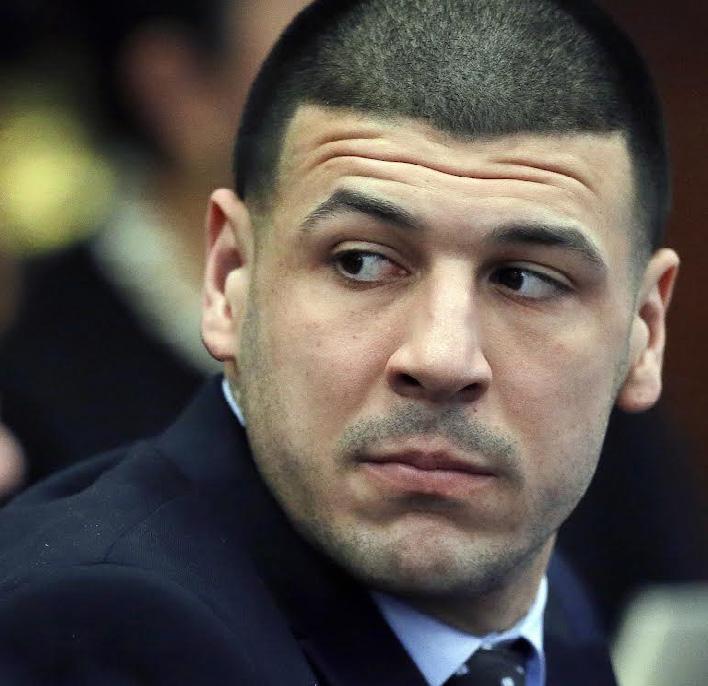





Answers to the Sudoku and Crossword on page 21

